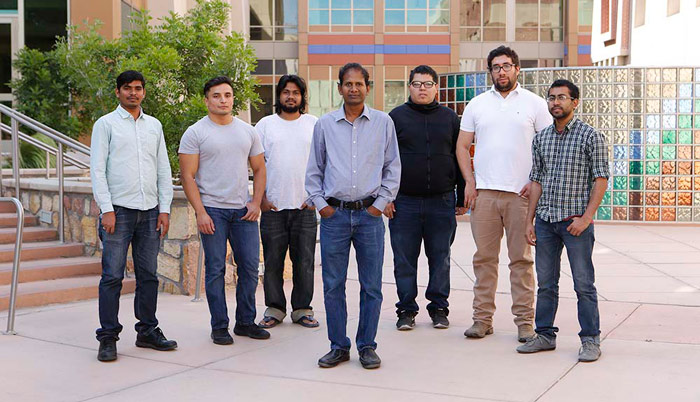Researcher Studies Deep Turbulence for Air Force
Last Updated on July 05, 2017 at 12:00 AM
Originally published July 05, 2017
By UC Staff
UTEP Communications
Vinod Kumar, Ph.D., associate professor in the Department of Mechanical Engineering, and his student research team will spend the next three years researching atmospheric turbulence to help the Air Force improve its laser target capabilities. Kumar was awarded a $150,000 grant from the Air Force Office of Scientific Research for the work.

The project seeks to develop metrics to effectively characterize the impact of deep turbulence on laser beam propagation over a long path. The study involves statistical quantification and employs expertise in computational fluid dynamics and Large Eddy Simulations turbulence modeling. His research team will closely interact with V.S. Rao Gudimetla, Ph.D., a senior research physicist at the Air Force Research Laboratory Maui Space Surveillance Site.
“The goal is to develop this … mathematical model that will better predict where the laser will point on the target and how we can make a better prediction before they are deployed into a real life scenario,” Kumar explained.
The research will advance laser-based remote sensing and imaging science and other adaptive optics (AO) technologies, which play an important role in the air-borne laser (ABL) and ground-based directed energy (DE) technologies. Future DE technologies can be used to effectively engage and destroy airborne missiles and/or track enemy’s air vehicles (e.g. satellites), which involve the beam propagation through a long atmospheric path.